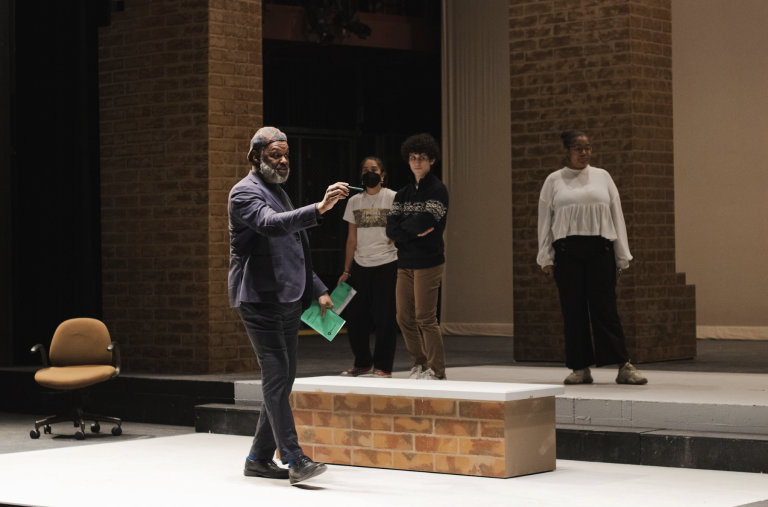Maciej Pradziad ’23
A&E Editor
Krzysztof Kieslowski’s Blind Chance (Przypadek 1987) explores the many facets and faces a human can experience under the harrowing (and other times harmonious) circumstances of chance, choice, and fate. This philosophical and moral examination of human life was masterfully written by Kieslowski himself and beautifully brought to life by cinematographer Krzysztof Pakulski through the use of a documentary-esque style. These two aspects alone culminate in a film that by the end, will truly allow you to appreciate the mysteries and coincidences of life, no matter how joyous or tragic.
Blind Chance tells the story of Witek Dlugosz, a medical student uncertain about his future, as he tries to grapple with the death of his father by taking a year off from school and catching the next train to Warsaw, Poland. The film plays out as three scenarios, with his fate depending on how he interacts with the various people he bumps into while he frantically tries to make the train on time.
Pakulski’s documentary-style cinematography stunningly shows the uncertainty of Witek’s future through the use of a shaky handheld camera that follows him from location to location. Although this film is very much about how one’s destiny is affected by the choices made in the present, Pakulski and Kieslowski cleverly show how one’s distant past can make up their current circumstances by shooting those sequences through a first-person point of view. The camera then pans into a wider shot to capture Witek, the carrier of said memories, and the sequence plays out in a third-person perspective, so as to capture the entire scope of the memory. This stylish technique is not only visually impressive, but also brings in thoughtful commentary about the unreliable nature of memory and how it changes over the course of our lives based on our biases and experiences.
Although certain screenwriting elitists and film critics denounce the ease with which Witek’s political beliefs change based on circumstances that happen to him, I believe that it makes the film stronger as we see the fallibility and fragility of the human mind. Kieslowski’s humanistic perspective shows that we, as human beings, don’t always make our own choices consciously as there are a million factors that happen simultaneously every second of our lives that are beyond our control. This interpretation of human life, whether true or not, is realistically played out in all three scenarios shown within the movie, with each one having the perfect amount of screentime that keeps the pacing fresh and leads to the audience asking for more. This three scenario structure also allows for an interestingly slow reveal of Witek’s flaws and memories that were not previously shown in flashback form, making each scenario vital in understanding the entirety of Witek’s complex character.
Blind Chance is a film that gently holds humanity’s beating heart with open hands and shows the audience every scar without flinching. Although the wounds might be terrifying and depressing to bear, it would seem Kieslowski believes that beauty will inevitably come and that it is always worth experiencing.




+ There are no comments
Add yours